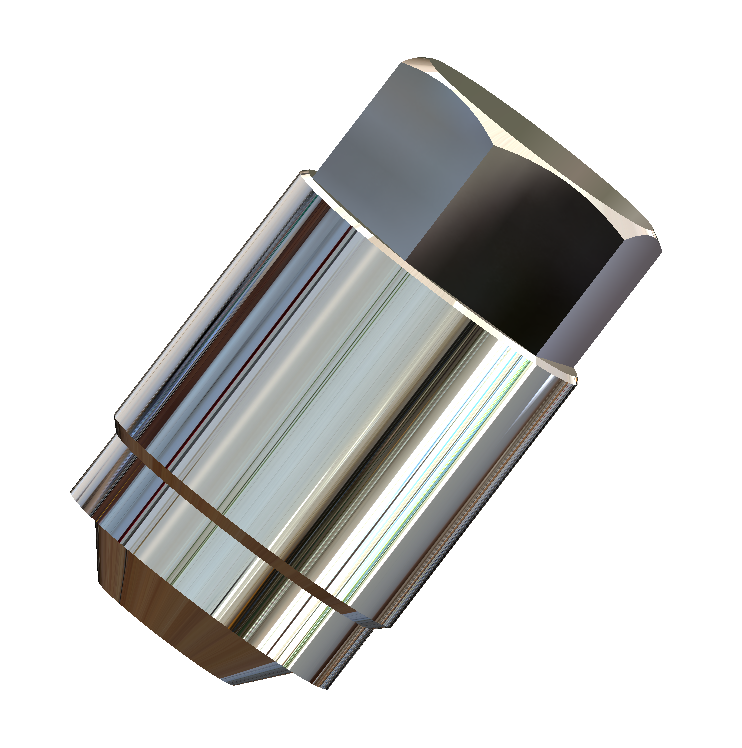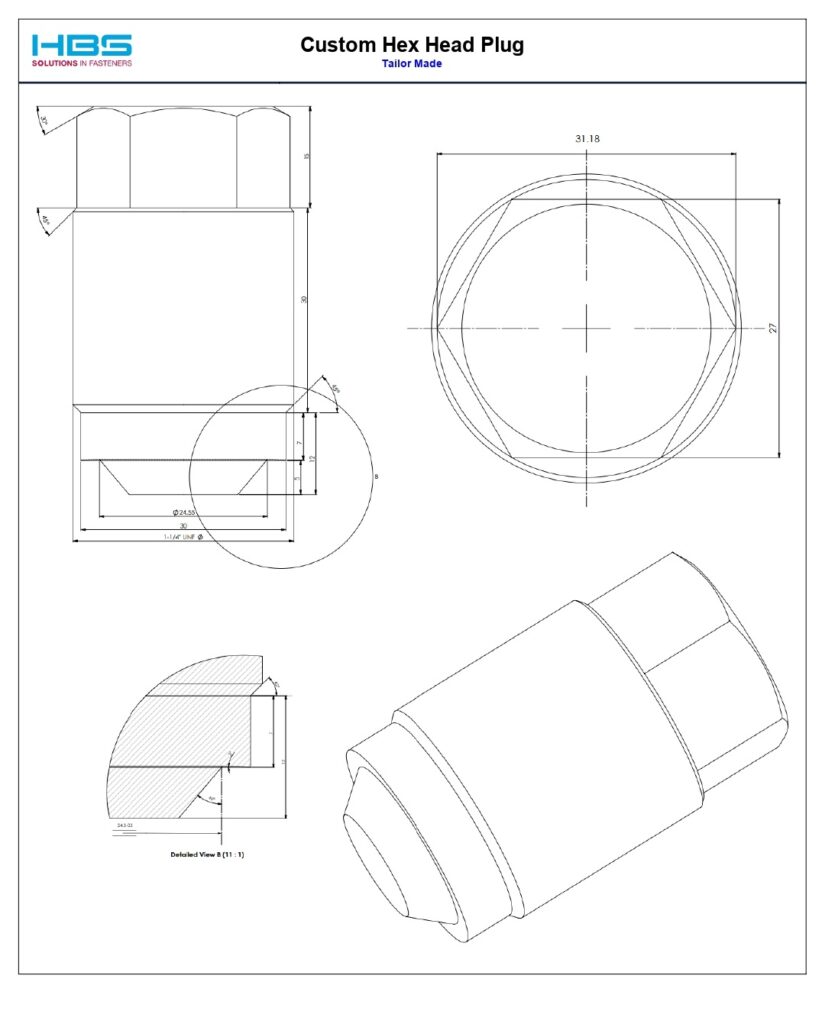In the intricate tapestry of engineering, Custom Hex Head Plugs emerge as bespoke solutions meticulously crafted to meet the diverse needs of industrial applications. Beyond their unique dimensions and specifications, the choice of thread type plays a pivotal role in custom plug design, offering engineers a spectrum of options to optimize performance, enhance functionality, and ensure seamless integration within complex systems. Let’s delve into the importance of different thread types such as 12UNF, 12UN, 12UNC, and more, and how they contribute to the versatility and effectiveness of custom plugs.
Catering to Thread Specificity:
One of the key reasons for the diversity of thread types in custom plugs lies in the specificity of threading requirements within industrial applications. Threads such as 12UNF (Unified Fine), 12UN (Unified National), and 12UNC (Unified National Coarse) each serve distinct purposes and exhibit unique characteristics tailored to specific operational demands. Engineers meticulously select the appropriate thread type based on factors such as load-bearing capacity, resistance to vibration, and compatibility with mating components, ensuring optimal performance and reliability in diverse environments.
Enhancing Performance and Reliability:
Different thread types offer varying levels of engagement, pitch, and tolerance, allowing engineers to fine-tune the performance and reliability of custom plugs to meet application-specific requirements. For instance, Unified Fine threads like 12UNF provide increased thread engagement and finer pitch, making them ideal for applications requiring enhanced strength and resistance to loosening due to vibration. On the other hand, Unified Coarse threads like 12UNC offer rapid assembly and disassembly capabilities, making them well-suited for applications where ease of installation is paramount.
Optimizing Compatibility and Interchangeability:
The choice of thread type also influences the compatibility and interchangeability of custom plugs with mating components and existing systems. By selecting threads that align with industry standards and specifications, such as those defined by organizations like the American National Standards Institute (ANSI) or the International Organization for Standardization (ISO), engineers ensure seamless integration and interchangeability across different systems and assemblies. This compatibility enhances flexibility, simplifies maintenance, and streamlines operations in industrial settings.
Addressing Application-Specific Challenges:
In addition to standard thread types, custom plugs may incorporate specialized threading configurations tailored to address unique application-specific challenges. Threads may be designed with custom pitches, thread forms, or thread depths to accommodate specific operational requirements, mating surfaces, or sealing mechanisms. By customizing thread types to align with the intricacies of each application, engineers optimize functionality, reliability, and performance, ensuring that custom plugs deliver exceptional results in even the most demanding environments.


